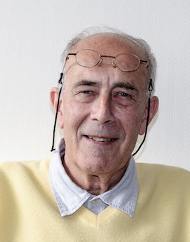Orateur
Description
We employ a feed-forward artificial neural network to extrapolate at large model spaces the results of ab-initio hypernuclear No-Core Shell Model calculations for the $\Lambda$ separation energy $B_\Lambda$ of the lightest hypernuclei, $^3_\Lambda$H, $^4_\Lambda$H and $^4_\Lambda$He, obtained in computationally accessible harmonic oscillator basis spaces using chiral nucleon-nucleon, nucleon-nucleon-nucleon and hyperon-nucleon interactions. The overfitting problem is avoided by enlarging the size of the input dataset and by introducing a Gaussian noise during the training process of the neural network. We find that a network with a single hidden layer of eight neurons is sufficient to extrapolate correctly the value of the $\Lambda$ separation energy to model spaces of size $N_{max}=100$. The results obtained are in agreement with the experimental data in the case of $^3_\Lambda$H and the $0^+$ state of $^4_\Lambda$He, although they are off of the experiment by about $0.3$ MeV for both the $0^+$ and $1^+$states of $^4_\Lambda$H and the $1^+$ state of $^4_\Lambda$He. We find that our results are in excellent agreement with those obtained using other extrapolation schemes of the No-Core Shell Model calculations, showing this that an ANN is a reliable method to extrapolate the results of hypernuclear No-Core Shell Model calculations to large model spaces.

